Diploma in Spirituality Course Aims
To provide the participants with a foundational, authentic, theological, scriptural, spiritual and psychological basis from which to design and deliver youth retreat and other youth ministry experiences, through a facilitative process.
This course in applied youth ministry and facilitation explores the development of a comprehensive methodology for retreat facilitators and other youth workers in our contemporary youth culture. Its values are rooted in a theological and pastoral vision of Christian Spirituality. Apart from helping participants develop foundational understandings for youth ministry, the skills of the course are transferable to varied pastoral work with youth. Reflective practice and theological reflection will be integral to the programme.
Course Objectives
At the conclusion of this course, participants should be able to:
- Design and conduct appropriate faith-based experiences for adolescents.
- Identify the relevant characteristics, skills and practices applicable in youth ministry today.
- Integrate and transfer theological reflection into their work as reflective practitioners.
Course Topics
- Introduction/course ethos – theological, educational and anthropological underpinnings of the course
- Safeguarding
- Adolescents and cultural influences; secularisation and the decline of institutional religion; media ‘platforms’ and their influence on adolescents
- Adolescent Development Piaget, Erikson, Marcia, Vygotsky
- Understanding the social media culture and influences on today’s teens
- Holistic understanding of mindfulness and wellbeing
- Christian meditation and young people
- Teens, stress, sexuality and developmental issues
- Class facilitation skills, group work, and practical approaches
- Practical use of music
- Practical use of drama and ice breakers
- Use of YouTube, video and film
- The use of story
- Reflective practice and theological reflection
- Understanding the sacraments of initiation, rites of initiation
- Youth culture and difficult questions
- New and Old Testament images of God. How our images of God affect our retreat facilitation and youth ministry
- The central role of Jesus in applied youth ministry
- The universe story, ecological awareness and responsibilities
- Laudato Si
- Introduction to ‘Godly Play’.
- Mission and ministry
Diploma in Spirituality Course content will be delivered using a In Class format
Closing date for applications is July 28th 2023
Course Dates 2024
Course will be held in the Liturgy Centre, St. Patrick’s Pontifical University Maynooth
Dates of Classes
August 31 Orientation Day and commencement of Module 1
(Ethos, Methodology, Meditation Practice, Spirituality and Social Media influences, Learning Journal, Prayer
September 14, Adolescents – Cultural and Social Media Influences.
September 28 Adolescent Theorists
Module 2
October 12, Confirmation Retreats Practical approaches Classroom Facilitation
October 19 Use of Drama and Music in Retreat Facilitation
November 9, Teens, Stress and Sexuality, Youth Retreats – practical approaches
November 23 Use of technology in retreat facilitation
December 7 Rites of Initiation – Story telling – Use in Retreat Facilitation
Module 3
January 11, Godly Play Use of Ice breakers in Retreat Facilitation
January 25. The Universe Story Ecological awareness and responsibility
February 8. Reflective practice and theological reflection
March 1, Laudato Si. Practical approaches
March 22. Mission and Ministry. Retreat Preparation
April 1 Personal development and scripture reflection.
Evaluation of the course
Module 4
Peer Presentations
Practical Placement
Detailed timetable available to students who apply for the course
Admission Criteria
Course Pre-Requisites:
- Ongoing commitment and a basic knowledge of their Christian Faith
- An openness to ongoing personal faith development and reflective practice
- A general awareness of the influences on adolescents today
- An aptitude and openness in working with young people
- An openness to using culturally and youth appropriate methodologies
- A proven academic ability to undertake a level 7 Diploma course
- A good standard of written and spoken English
Cost of Diploma:
2 Year €2,000
(This includes a €100 registration fee, tuition, student card, library access and resources)
Can be paid in full at the beginning of the first semester or in two instalments, €1000 BEFORE 29th August and €1000 in early January (BEFORE January 12)
Module 1: Adolescent development, psychology and culture
Learning outcomes
Students will
- Demonstrate an understanding of the complex period that is adolescence and the relevant learning theorists
- Describe how youth ministers can help adolescents cope with the challenges they may face, such as anxiety, depression, bullying and alcohol or substance abuse
- Appraise and critique the implications of contemporary culture in dealing with young people in retreat and pastoral situations
- Discuss and evaluate the effect of social media on young people. Propose ways in which young people can use social media can enhance the Christian way of live
- Identify the main characteristics of today’s understanding of the spiritual, psychological and social development of adolescents
- Identify ways of engaging with young people who are disenchanted with the institutional Church and who no longer practice their faith
- Identify the ways in which the Shekinah course can respond to the issues outlined in the wellness strand of the school curriculum – psychological and spiritual health of young people
Module 2: Applied skills in youth ministry
Learning outcomes
Students will
- Identify the skills and practice to engage in a multi-disciplinary approach to youth ministry.
- Illustrate the value of facilitation skills over a teaching or preaching method
- Identify the skills needed to develop an understanding of group management and boundaries
- Evaluate the key areas needed to enhance skills and practice in youth ministry
- Examine ways of finding language and symbols to engage young people with gospel and faith values
- Identify the relevant professional protocols when dealing with schools or parishes
- Significantly enhance their effectiveness in ministering to adolescents through a deeper understanding of the challenges and opportunities inherent in a rapidly changing culture
Module 3: Approaches to theology, scripture, spirituality and reflective practice
Learning outcomes
Students will be able to:
- Examine and describe the person of Jesus of Nazareth and be able to help young people develop a relationship with the living Christ
- Examine ways of finding language and symbols to engage young people with gospel and faith values
- Relate the practice of meditation to an understanding of the Christian mystical tradition
- Examine how the image of God developed in the Old Testament and how it achieved its fullest expression in the person of Jesus
- Discover the connection between the practice of our faith and the universe in the light of Laudato Si’
- Identify different levels of reflection with regard to their own work and that of others
- Identify the process of ‘theological reflection’ as the common methodology of theological thinking
- Assemble and apply a method of theological reflection understanding its strengths and weaknesses
- Compare and contrast the difference between descriptive and reflective writing
- Integrate theological reflection into their work as reflective practitioners
- Significantly enhance their effectiveness in ministering to adolescents through a deeper understanding of the challenges and opportunities inherent in a rapidly changing culture
Module 4: Practical placement
Learning outcomes
Students will
- Show knowledge, ability and comprehension of the characteristics involved in organising and preparing a youth retreat or youth ministry programme
- Demonstrate their ability to apply their knowledge and comprehension of the necessary elements in youth retreat and youth ministry programmes to address the complexities of the current cultural situation for today’s youth
- Demonstrate their ability to design and implement an effective evaluation methodology for their work
- Demonstrate their ability to design and implement a personal theological reflective practice for their work
STUDENT WORKLOAD AND CRITERIA FOR ASSESSMENT
Students are strongly recommended to make use of the library facilities (Maynooth University library facilities are also available on-line), lecture notes and resources offered
Students are required to attend all workshop days and view all pre-recorded lectures and tutorial material. If someone is absent due to illness or other extenuating circumstances, they will have to do an additional assignment pertaining to the particular section that they missed. They will also have to take responsibility for acquiring any relevant material pertaining to that day. Students who do not meet these criteria will not have met the requirements for graduation. Students who miss more than one day, for any reason, will not be eligible to graduate; however, they will be given the opportunity to complete the course the following year. Full details regarding attendance are included in the course handbook.
- Practical In-Class Participation
Students will demonstrate their skills in leading meditation and prayer experiences, ice- breakers and involvements exercises. They will be encouraged to create audio visual presentations and demonstrate their ability to select appropriate media resources for appropriate age groups.
Marks will be awarded for the following:
4 Essays 2,000 words each
- Class Assessment and Learning reflections 10%
Course tutors will set a short learning reflection at the end of each day
Preparation and presentation of 2 supervised retreats. These will be followed by a feedback session. Details in handbook
4 Retreats or equivalent youth ministry experiences in a school or parish setting. Students must organise their own placements. See handbook for details
This will contain account of practical placement, peer presentations, icebreakers, craft assignments and reflective involvement exercises. Details in handbook

